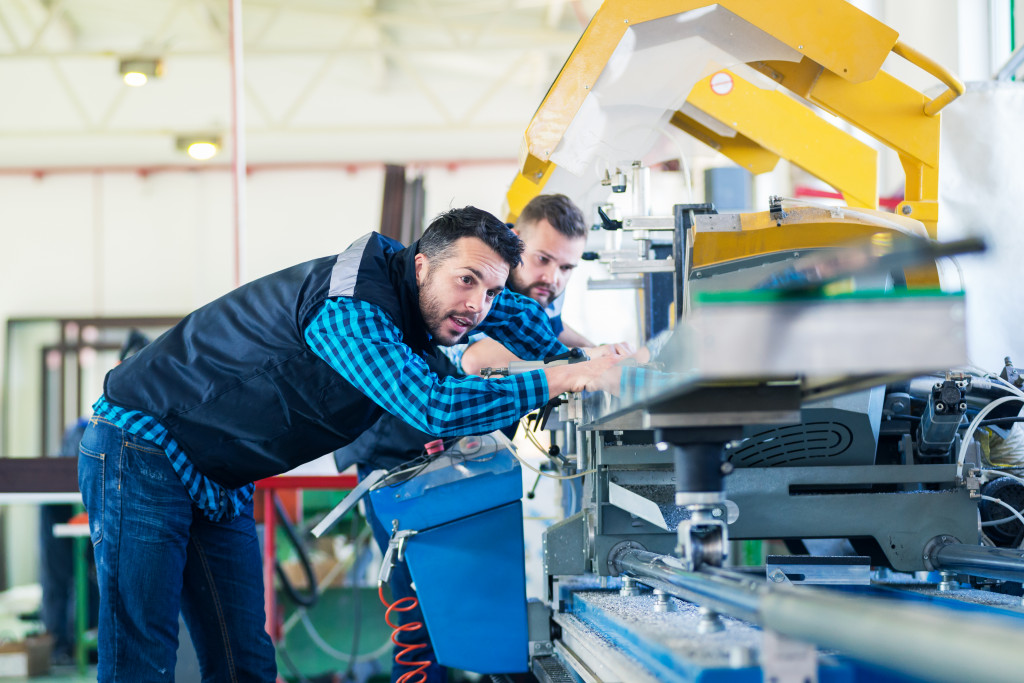- Automation uses technology and machines to perform tasks that traditionally require human labor.
- Implementing automation in manufacturing can range from simple repetitive actions to complex processes.
- The benefits of automating manufacturing include improved efficiency, accuracy, safety, and cost savings over the long term.
- Automation also creates new jobs and opportunities for manufacturers who can stay flexible and embrace new technologies.
- Upfront automation costs may be high, but the return on investment will likely be significant.
The rise of automation in the manufacturing industry has been monumental over recent years. Manufacturers are continually adopting new technology to help streamline their production processes, eliminate errors, enhance efficiency, and stay competitive. Automation has transformed production lines from manual, labor-intensive operations to sophisticated, streamlined, and highly productive setups.
As a result, the demand for automation in the manufacturing industry is expected to grow significantly over the next few years. Here are the key things you need to know about automation in the manufacturing industry.
What is automation?
Automation is a trendy buzzword in the manufacturing sector, but what does it mean, and why should manufacturers care? Put simply, automation refers to the use of technology and machines to perform tasks that traditionally require human labor.
This can range from simple repetitive actions, such as tightening screws or fastening lids on the packaging, to more complex processes, such as assembly and quality control.
The implementation of automation in manufacturing

There are several different approaches when it comes to implementing automation in a manufacturing process. For example, some manufacturers may automate their entire production line from start to finish. Others might opt for a more piecemeal approach, gradually introducing robots and automated processes into their existing setup as needed.
Automation also involves using various equipment and machines to complete the task. For instance, large electric actuators power robotic arms or other automated equipment that can quickly and accurately perform operations like painting, welding, and drilling.
Different automation systems may be used depending on the product being manufactured. For example, some manufacturers might employ vision inspection systems to identify quicklyproduct defects or discrepancies.
The benefits of automating manufacturing
There are numerous benefits to automating manufacturing processes. Here are some of them.
Automation improves efficiency and accuracy.
Automation systems like robots, machine vision systems, and artificial intelligence can perform some tasks faster and more accurately than human workers. Automating manufacturing processes can eliminate bottlenecks, speed up production, reduce downtime, and minimize errors. Automation also eliminates employee fatigue, which can result in inconsistencies in product quality and production rates.
Automation enhances safety
Another critical advantage of automation in the manufacturing industry is that it helps promote safety. Automated machines can handle hazardous materials and carry out dangerous tasks without putting workers at risk.
Moreover, robots and machines do not get tired or distracted, which can reduce the chance of industrial accidents. This can also help manufacturers save money in the long run by reducing the number of worker injuries and insurance claims.
Upfront costs may be high
While automation can yield significant cost savings in the long run, the initial investment can be pretty high. Manufacturers must carefully weigh the benefits versus the costs of automation before deciding.
Considering factors such as the required infrastructure, training, and maintenance costs is essential before implementing automation. In addition, manufacturers should ensure they comply with the relevant safety regulations before starting their automated systems.
Automation creates new jobs

Contrary to popular belief, automation does not necessarily mean job losses in the manufacturing industry. Automation creates new jobs, especially in robotics, engineering, programming, and maintenance. These jobs require specialized skills that are in high demand and essential for ensuring manufacturing facilities’ seamless operation.
Manufacturers must remain flexible
As technology evolves rapidly, manufacturers need to stay flexible to embrace new automation systems. Manufacturing processes that work well with current automation systems may become outdated in a few years, and manufacturers who are rigid in adopting new technology could fall behind competitors.
Moreover, manufacturers should keep an eye on the latest advances in automation technology to gain a competitive edge. Keeping up with industry trends and understanding the implications of automation can help manufacturers anticipate opportunities and stay one step ahead of their competitors.
The Bottom Line
Automation is rapidly becoming crucial to the success of manufacturing in today’s fast-paced environment. The benefits of automation include enhanced efficiency, accuracy, and safety. While the high upfront costs of automation may be a deterrent for some manufacturers, the return on investment in the long term is likely to be significant.
Automation creates new jobs and opportunities for manufacturers who can stay flexible and embrace new technologies. For those who haven’t invested in automation, it is time to explore its benefits.
